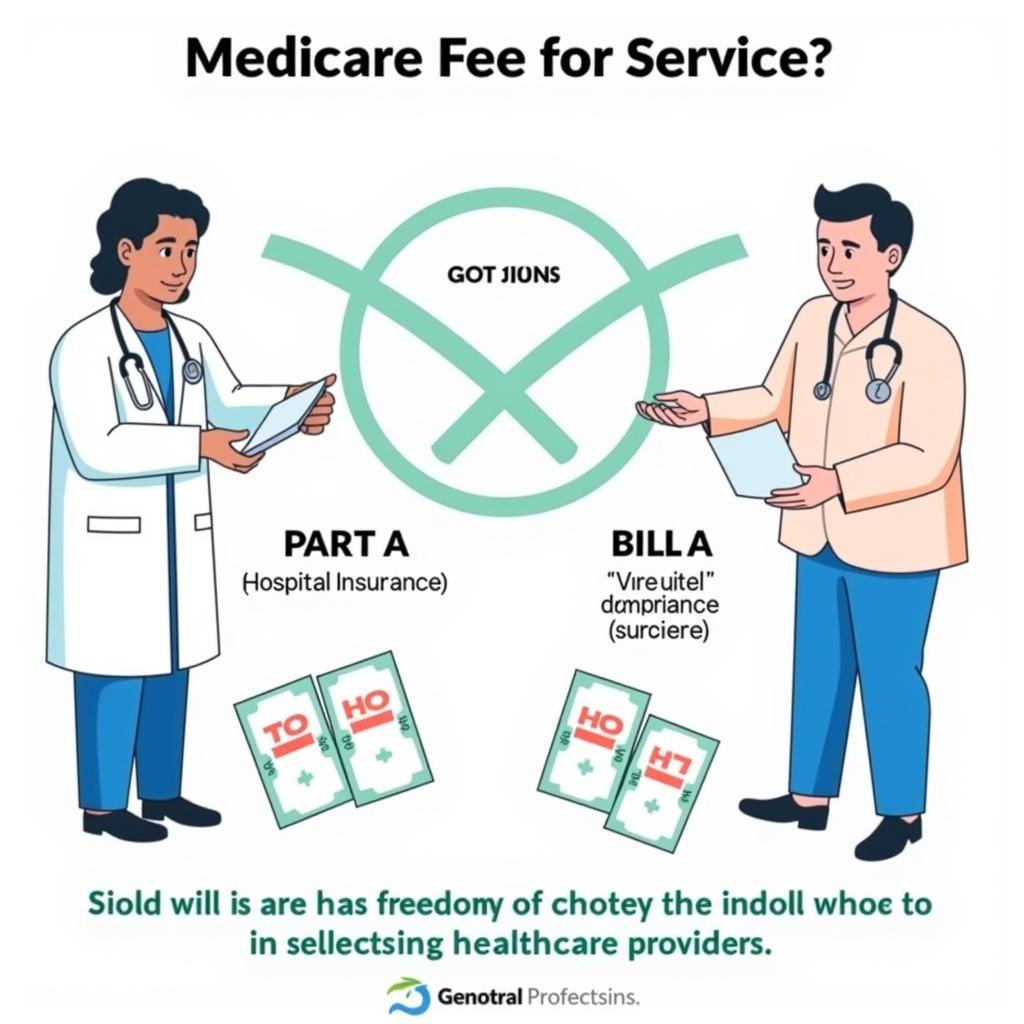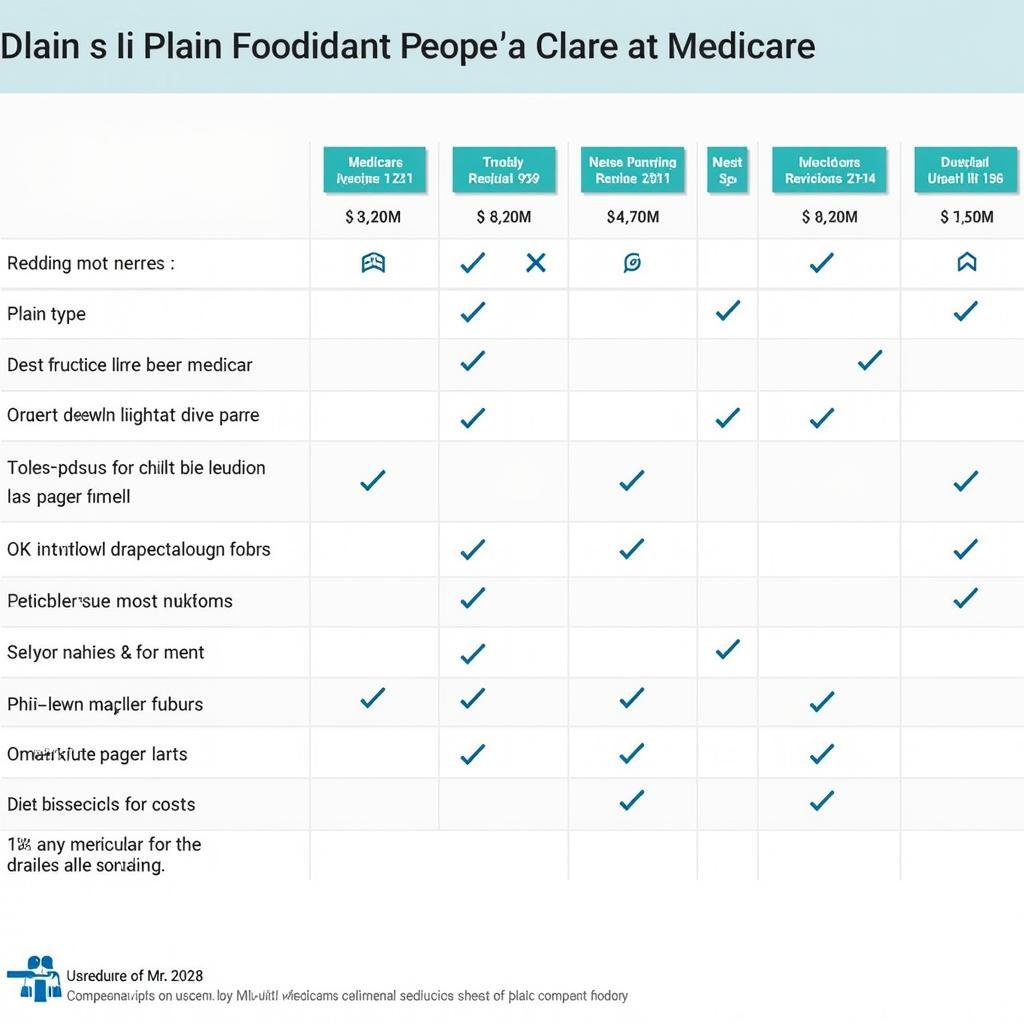What is Medicare Fee for Service vs. Managed Care?
Navigating the complexities of Medicare can feel like trying to decipher a foreign language. You’re bombarded with terms like “deductibles”, “copayments”, and “networks,” leaving you more confused than when you started. One of the most significant decisions you’ll face is choosing between Medicare Fee for Service and Medicare Managed Care. This choice directly impacts your healthcare costs, provider access, and overall coverage.
Understanding Medicare Fee for Service
Medicare Fee for Service, also known as Original Medicare, is the traditional way to receive your Medicare benefits. It’s comprised of two parts:
- Part A (Hospital Insurance): This covers inpatient hospital stays, skilled nursing facility care, some home health care, and hospice care.
- Part B (Medical Insurance): Part B covers doctor’s visits, outpatient care, preventive services, and some medical equipment.
With Fee for Service, you have the freedom to choose any doctor or hospital that accepts Medicare, providing flexibility and a wide range of options.
 illustration-showing-medicare-fee-for-service
illustration-showing-medicare-fee-for-service
However, this flexibility comes with potential downsides. Original Medicare typically doesn’t cover prescription drugs, dental, vision, or hearing care. To address these gaps, you might need to purchase supplemental insurance plans (Medigap) and a separate prescription drug plan (Part D).
Exploring Medicare Managed Care
Medicare Managed Care, also known as Medicare Advantage, offers an alternative approach to your coverage. Private insurance companies contract with Medicare to provide Part A and Part B benefits, often including prescription drug coverage (Part D).
Key features of Medicare Advantage plans include:
- Network of Providers: You typically need to choose providers within the plan’s network, except in emergencies.
- Additional Benefits: Many plans offer extra perks not covered by Original Medicare, such as dental, vision, hearing, and even gym memberships.
- Predictable Costs: Managed care often involves fixed monthly premiums and copays, making budgeting for healthcare expenses more predictable.
 comparison-chart-medicare-advantage-plans
comparison-chart-medicare-advantage-plans
While Medicare Advantage can seem attractive with its comprehensive coverage and potential cost savings, it’s essential to weigh the limitations. Network restrictions might mean giving up your preferred doctor or facing higher out-of-pocket costs if you need to see an out-of-network specialist.
Which Option is Right for You?
Choosing between Fee for Service and Managed Care hinges on your individual healthcare needs and preferences.
Consider Fee for Service if you:
- Value provider flexibility and want to choose your doctors and hospitals.
- Travel frequently and need access to a broad network of providers.
- Have pre-existing health conditions that might require specialized care.
“Patients with complex medical histories often benefit from the freedom of choice offered by Fee for Service,” says Dr. Emily Carter, a board-certified internist. “They can seek care from specialists without network limitations, ensuring they receive the most appropriate treatment.”
Consider Managed Care if you:
- Prefer predictable healthcare costs and the convenience of bundled coverage.
- Don’t mind using a network of providers and prioritize additional benefits.
- Are relatively healthy and don’t anticipate needing extensive medical care.
Making an Informed Decision
Making the right choice for your Medicare coverage is crucial. Carefully review your options, compare plans, and consider factors like your health status, budget, and desired level of flexibility.
This article provides a general overview and shouldn’t substitute professional advice. For personalized guidance, consult with a licensed insurance agent or Medicare representative. They can help you navigate the complexities of Medicare and find a plan that aligns with your needs.
Frequently Asked Questions
1. Can I switch from Fee for Service to Managed Care (or vice versa)?
Yes, you have the flexibility to switch during specific enrollment periods.
2. Does Medicare cover long-term care expenses?
Generally, Medicare doesn’t cover long-term care. You might need to explore other options, such as Medicaid or long-term care insurance.
3. How do I find out if my doctor accepts Medicare?
You can check the Medicare website or contact your doctor’s office directly.
4. What are the income limits for Medicare eligibility?
There are no income limits to qualify for Medicare.
5. Can I have both Fee for Service and Managed Care coverage?
No, you must choose one or the other.
Need assistance choosing the best car service plan? Contact our expert team via WhatsApp: +1(641)206-8880 or Email: [email protected]. We’re available 24/7 to assist you!

